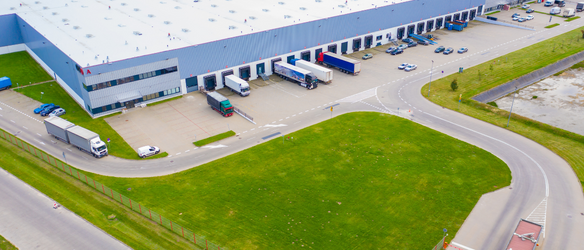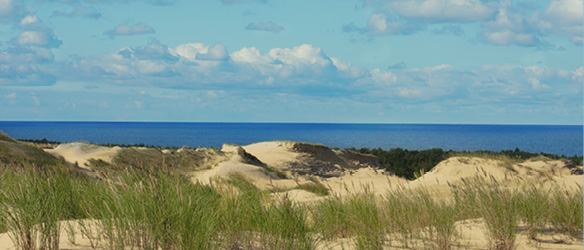On March 23, 2023, Tabakov, Tabakova and Partners announced that Delta Foods’ sale of the United Milk Company in Bulgaria to Tyrbul (reported by CEE Legal Matters on September 7, 2022) had closed.
Albania Doubles Down on Energy and EU Acquis: A Buzz Interview with Sabina Lalaj of Deloitte Legal
As the Albanian government seeks to utilize the energy crisis as a catalyst for encouraging energy investments and production, significant changes are expected in the country's overall legislation – in light of the negotiation process – to comply with EU standards, according to Deloitte Legal Local Legal Partner Sabina Lalaj.
Reff & Associates Successful for Promenada Mall in Urban Planning Dispute Before Bucharest Court
Deloitte Legal Romanian affiliate Reff & Associates has successfully represented NEPI Rockcastle’s Promenada Mall Bucharest before the Bucharest Court in an urban planning-related administrative dispute resulting in the end of the suspension of the Urban Plan for Bucharest's Second District.
Positive Surprises in 2022
2022 was a difficult year. To put a more positive spin on things, Rojs Peljhan Prelesnik & Partners Managing Partner Bojan Sporar, Deloitte Legal Senior Managing Associate Ened Topi, Redcliffe Partners Managing Partner Olexiy Soshenko, Drakopoulos Managing Partner Panagiotis Drakopoulos, and Polenak Partner Tatjana Shishkovska share what was, for them, the biggest positive surprise in 2022.
Wolf Theiss, Deloitte Legal, and Boyanov & Co Advise on Sale of BNP Paribas Personal Finance Bulgaria to Eurobank
Wolf Theiss, working with Shearman & Sterling, has advised BNP Paribas Personal Finance on its sale of BNP Paribas Personal Finance Bulgaria to Eurobank Bulgaria. Deloitte Legal and Boyanov & Co advised the buyer.
The Status of FDI in Albania
With interesting transactions taking place recently and an overall uptick in FDI numbers, it would appear that Albania is fertile ground for high ROI. Deloitte Legal Local Partner Sabina Lalaj and Kalo & Associates Co-Managing Partner Eni Kalo zero in on the status of FDI investments in Albania, explore the most appealing sectors and investors, and make predictions for the future.
Deloitte Legal Advises Scope Fluidics on WSE Main Market Listing
Deloitte Legal has advised Scope Fluidics on the transfer of its listing from NewConnect to the main market of the Warsaw Stock Exchange.
Krehic & Partners Advises Belfry Group on Acquisition of Pismorad
Krehic & Partners, in cooperation with Deloitte Legal, has advised the Belfry Group on its acquisition of the majority shareholding in Pismorad. The joint law office of Lovro Zovko and Antonija Simonkovic reportedly advised the sellers.
Did You Know: CEE 2022 Leaders According to CEELM Direct
Did you know that Dentons worked on more reported client matters in Central and Eastern Europe in 2022 – 86 – than any other firm (with Sorainen only one behind), and that Andrzej Stosio of Clifford Chance in Poland worked on more client matters than any other lawyer in the region – 13 (with Mantas Petkevicius of Sorainen in Lithuania and Roxana Ionescu of Radu Taracila Padurari Retevoescu in Romania both only one behind, with 12)?
Deloitte Legal Advises on Sizeer Expansion in Slovenia, Croatia, Serbia, and Bosnia and Herzegovina
Deloitte Legal has advised Marketing Investment Group on the acquisition of a chain of 22 stores in Slovenia, Croatia, Serbia, and Bosnia and Herzegovina.
Clifford Chance Advises Bank Pekao on Financing Acquisition and Redevelopment of Three Logistics Centers
Clifford Chance has advised Bank Pekao on its over PLN 500 million financing for the acquisition and redevelopment of three logistics centers by separate special purpose vehicles. Reportedly, Greenberg Traurig advised the sellers and Deloitte Legal advised the buyers on the acquisition transaction. On the financing transaction, Greenberg Traurig reportedly advised the buyers on receiving the financing.
Krehic & Partners and Cipcic-Bragadin Mesic & Associates Advise on Sale of Syskit Croatia to Syskit UK
Krehic & Partners in cooperation with Deloitte Legal, working with Deloitte Legal UK, has advised Syskit Croatia and its Croatian shareholders on the sale of their shares to Cade Hill Investments-funded Syskit UK. Cipcic-Bragadin Mesic & Associates, working with Mills & Reeve, advised the buyer.
Deloitte Legal Advises LKN Wealth Capital Investors on Sale of Stake in Media Pop
Deloitte Legal has advised LKN Wealth Capital Investors on the sale of its stake in Media Pop to Grupa Wirtualna Polska. Brzozowska & Barwinska reportedly advised Grupa Wirtualna Polska.
TMT Leading the M&A Charge for Croatia: A Buzz Interview with Tarja Krehic of Krehic & Partners
High levels of M&A activity in Croatia, originating from both domestic companies and foreign investors, are reshaping a number of sectors – primarily IT and media – according to Tarja Krehic, Managing Partner of Krehic & Partners in cooperation with Deloitte Legal.
Did You Know: CEELM's Litigation/Dispute Resolution Briefings Leaderboard
Did You Know that, according to the Activity Rankings function of the CEELMDirect website, Schoenherr has published 18 articles of legal analysis on the subject of litigation/dispute resolution on CEE Legal Matters — the most of any firm — over the nine years of its existence?
Deloitte Legal Advises Van Oord Dredging and Marine on Klaipeda Port Capital Dredging Works Tender
Deloitte Legal has advised Van Oord Dredging and Marine Contractors on its successful bid in a tender for a capital dredging works project in Klaipeda Port.
Guest Editorial: Lawyering at the Edge of Legal Landscape Transformation
The legal landscape has changed remarkably since 2008 when I made the jump from being an in-house lawyer at the Central Bank of Albania to a legal associate at a law firm. At the time, for a lawyer working in two small-sized non-EU countries such as Albania and Kosovo, work was predominantly focused on the local markets, with no or little exposure to international activities. This started to change as the CEE region became more attractive to foreign investors, who were looking at opportunities often spread across several countries. The legal work in M&A, privatization processes, and energy investments often involved teams from various law firms, both in CEE and in Western Europe or the US, and was my gateway to gaining knowledge of the regional market and understanding the space for growth there.
Reff & Associates and Tuca Zbarcea & Asociatii Advise on NEPI Rockcastle’s Acquisition of Stake in Ploiesti Shopping City from Carrefour
Deloitte Legal affiliated firm Reff & Associates has advised NEPI Rockcastle on its acquisition of Carrefour's stake in Ploiesti Shopping City. Tuca Zbarcea & Asociatii advised Carrefour.



































